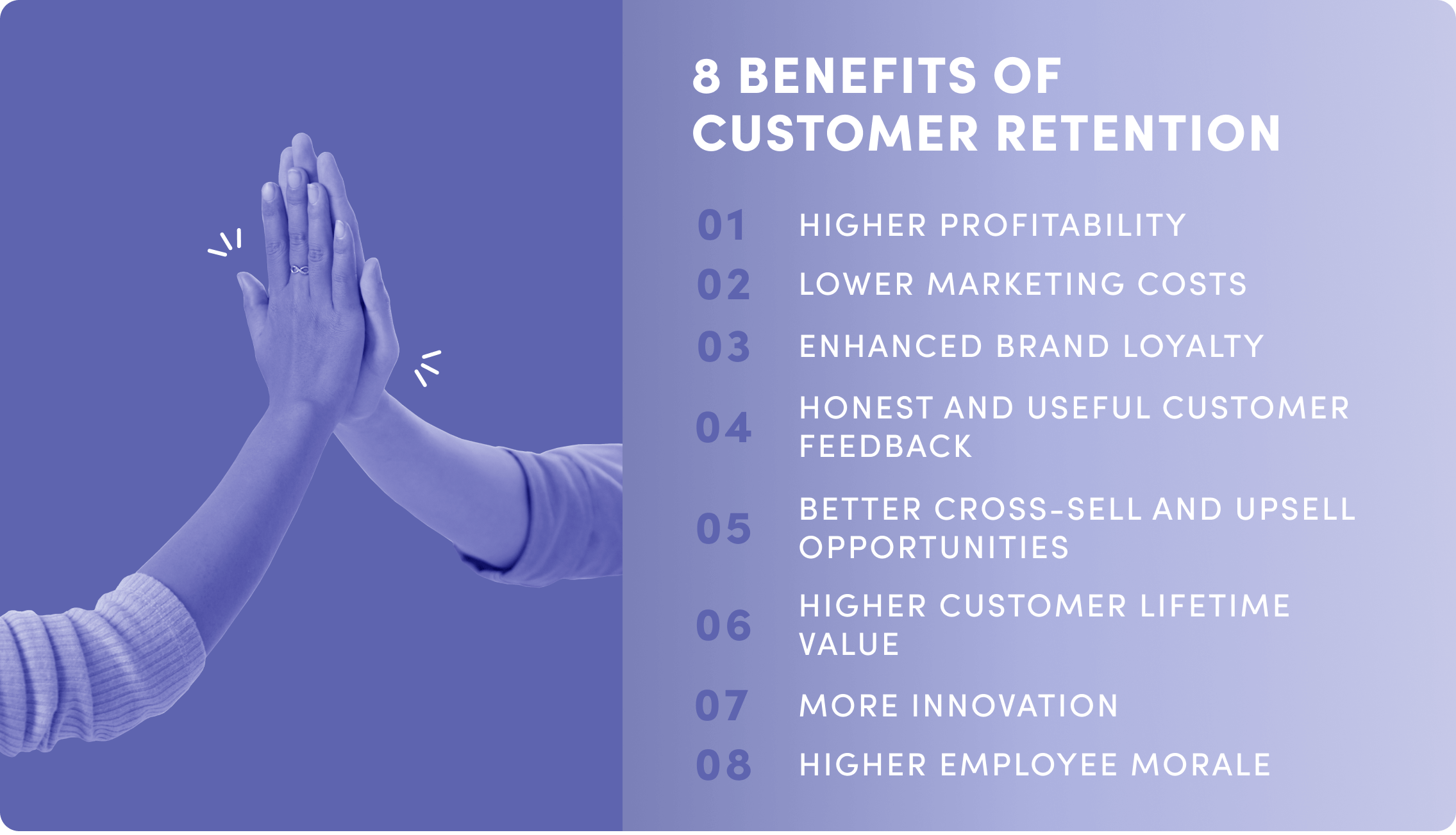In today’s competitive business landscape, retaining customers is just as crucial as acquiring new ones. Companies that effectively manage their customer relationships are more likely to foster loyalty and drive long-term growth.
A Customer Relationship Management (CRM) system is a powerful tool that can help businesses achieve this goal.
By leveraging CRM benefits, organizations can gain a deeper understanding of their customers’ needs, preferences, and behaviors, ultimately leading to improved customer retention rates and increased revenue. Effective CRM implementation can be a game-changer for businesses seeking to build strong, lasting customer relationships.
Maximizing Customer Loyalty with CRM Benefits
Implementing a Customer Relationship Management (CRM) system can significantly enhance customer retention by providing businesses with the tools and insights needed to foster stronger customer relationships.
By leveraging CRM benefits, companies can better understand their customers’ needs, personalize their interactions, and ultimately drive loyalty.
Personalization through Data Analysis
A CRM system allows businesses to collect and analyze vast amounts of customer data, enabling them to create highly personalized experiences. By understanding customer behavior and preferences, companies can tailor their marketing efforts, offer relevant products or services, and improve overall customer satisfaction.
This personal touch can make customers feel valued and understood, increasing the likelihood of long-term loyalty.
Enhanced Customer Service
CRM systems also facilitate efficient customer service by providing a centralized platform for managing customer interactions. This enables businesses to respond promptly to customer inquiries, resolve issues quickly, and maintain a record of all interactions.
By delivering timely and effective support, companies can build trust with their customers and demonstrate a genuine commitment to their satisfaction.
Proactive Retention Strategies
Furthermore, CRM benefits include the ability to develop proactive retention strategies. By analyzing customer data and behavior, businesses can identify early warning signs of potential churn and take proactive measures to prevent it.
This might involve offering targeted promotions or loyalty rewards to at-risk customers, or simply checking in to ensure their needs are being met. By being proactive, companies can reduce the risk of losing valuable customers and maintain a strong, loyal customer base.
| CRM Benefits | Description | Impact on Customer Retention |
|---|---|---|
| Personalization | Tailoring interactions based on customer data and behavior | Increased customer satisfaction and loyalty |
| Efficient Customer Service | Centralized platform for managing customer interactions | Improved customer trust and satisfaction |
| Proactive Retention Strategies | Identifying and addressing potential churn through data analysis | Reduced risk of customer loss and increased loyalty |
How does CRM help in customer retention?
Customer Relationship Management (CRM) is a strategic approach that helps businesses manage their interactions with customers and potential customers. It involves using technology to organize, automate, and synchronize sales, marketing, and customer service functions. One of the primary benefits of CRM is its ability to help businesses retain customers.
CRM helps in customer retention by providing a comprehensive view of customer interactions, enabling businesses to understand their customers’ needs, preferences, and behaviors.
This information can be used to create targeted marketing campaigns, improve customer service, and develop loyalty programs that encourage customers to continue doing business with the company.
Understanding Customer Behavior
Understanding customer behavior is crucial in developing effective customer retention strategies. CRM systems provide businesses with a wealth of information about their customers, including their purchase history, browsing behavior, and interactions with the company.
This information can be used to identify patterns and trends in customer behavior, enabling businesses to anticipate and respond to their customers’ needs.
Some ways CRM helps in understanding customer behavior include:
- Analyzing customer purchase history to identify frequent purchases and preferences
- Tracking customer interactions across multiple channels, including social media and email
- Using data analytics to identify patterns and trends in customer behavior
Personalizing Customer Interactions
Personalization is a key aspect of customer retention, as it enables businesses to create a tailored experience for each customer. CRM systems provide businesses with the information they need to personalize customer interactions, including customer preferences, purchase history, and browsing behavior.
By using this information, businesses can create targeted marketing campaigns, offer personalized recommendations, and provide a more relevant customer experience.
Some ways CRM helps in personalizing customer interactions include:
- Using customer data to create targeted marketing campaigns
- Offering personalized product recommendations based on customer purchase history
- Providing a tailored customer experience through personalized content and offers
Improving Customer Service
Providing excellent customer service is critical in retaining customers and building loyalty. CRM systems can help businesses improve their customer service by providing a comprehensive view of customer interactions and enabling them to respond quickly and effectively to customer inquiries.
By using CRM, businesses can also identify areas for improvement and develop strategies to address common customer complaints.
Some ways CRM helps in improving customer service include:
- Providing a comprehensive view of customer interactions across multiple channels
- Enabling businesses to respond quickly and effectively to customer inquiries
- Identifying areas for improvement and developing strategies to address common customer complaints
What are the benefits of customer retention?

Customer retention is a crucial aspect of any business, as it directly impacts the company’s revenue, growth, and overall success. The benefits of customer retention are numerous and can be seen in various areas of the business.
Increased Revenue
Retaining customers leads to increased revenue through repeat business and referrals. Loyal customers are more likely to continue purchasing from the company, and they may also recommend the business to their friends and family. This can result in a significant increase in revenue over time.
- Repeat business from loyal customers can lead to a steady stream of income.
- Referrals from satisfied customers can bring in new business without the need for expensive marketing campaigns.
- Loyal customers are more likely to try new products or services, leading to additional revenue streams.
Cost Savings
Customer retention can also result in significant cost savings for the company. Acquiring new customers can be expensive, with costs including marketing, advertising, and sales efforts. By retaining existing customers, the company can reduce these costs and allocate resources more efficiently.
- The cost of retaining an existing customer is generally lower than acquiring a new one.
- Reduced marketing and advertising expenses can lead to significant cost savings.
- Lower sales and customer acquisition costs can result in increased profitability.
Competitive Advantage
A high customer retention rate can also provide a competitive advantage in the market. Companies with loyal customer bases are better positioned to withstand competition and market fluctuations. By focusing on customer retention, businesses can build a loyal customer base that will help drive long-term success.
- A loyal customer base can provide a barrier to entry for competitors.
- Companies with high customer retention rates are more likely to be seen as industry leaders.
- Loyal customers can provide valuable feedback and insights, helping the company to stay ahead of the competition.
What are the benefits five 5 of customer relationship management CRM system?

The benefits of a customer relationship management (CRM) system are numerous, and implementing one can have a significant impact on a business’s overall performance. Five key benefits of a CRM system include improved customer satisfaction, enhanced sales performance, better customer insights, streamlined processes, and increased revenue.
Improving Customer Satisfaction
A CRM system helps businesses to better understand their customers’ needs and preferences, allowing them to provide more personalized and effective service. By having access to a customer’s interaction history, businesses can tailor their communication and offerings to meet the customer’s specific needs. Some ways a CRM system improves customer satisfaction include:
- Providing a single, unified view of customer interactions across all channels and touchpoints
- Enabling businesses to respond promptly to customer inquiries and concerns
- Allowing businesses to offer personalized promotions and offers based on customer behavior and preferences
Enhancing Sales Performance
A CRM system can significantly enhance sales performance by providing sales teams with the insights and tools they need to close more deals. By having access to real-time customer data and sales analytics, sales teams can identify new opportunities and pursue them more effectively. Some ways a CRM system enhances sales performance include:
- Providing sales teams with real-time visibility into customer interactions and sales pipeline activity
- Enabling sales teams to track customer behavior and identify potential sales opportunities
- Allowing sales teams to analyze sales data and identify trends and areas for improvement
Streamlining Business Processes
A CRM system can help businesses to streamline their processes by automating routine tasks and providing a centralized platform for customer data and interactions. By automating tasks such as data entry and lead qualification, businesses can free up staff to focus on higher-value activities. Some ways a CRM system streamlines business processes include:
- Automating routine tasks and workflows to reduce manual errors and increase efficiency
- Providing a centralized platform for customer data and interactions to reduce data duplication and improve data integrity
- Enabling businesses to integrate their CRM system with other business applications and systems to create a seamless and connected customer experience
Frequently Asked Questions
What are the primary CRM benefits for customer retention?
Implementing a CRM system helps businesses retain customers by providing a centralized platform to manage customer interactions, track preferences, and analyze behavior. This enables personalized marketing, improved customer service, and targeted retention strategies. By leveraging CRM benefits, companies can increase customer loyalty, reduce churn rates, and ultimately drive long-term revenue growth.
How does CRM improve customer retention rates?
CRM improves customer retention by allowing businesses to track customer interactions, identify patterns, and anticipate needs. It enables companies to respond promptly to customer concerns, offer tailored solutions, and foster strong relationships. By using CRM data to inform retention strategies, businesses can proactively address potential issues, reduce churn, and increase customer satisfaction.
Can CRM really help reduce customer churn?
Yes, CRM can significantly help reduce customer churn by providing insights into customer behavior and preferences. By analyzing CRM data, businesses can identify early warning signs of churn and implement targeted retention strategies. This proactive approach enables companies to address customer concerns, improve satisfaction, and ultimately reduce the likelihood of customer churn.
How do CRM benefits impact long-term customer relationships?
CRM benefits have a positive impact on long-term customer relationships by enabling businesses to deliver personalized experiences, respond to customer needs, and build trust. By leveraging CRM data and insights, companies can foster strong, lasting relationships with customers, drive loyalty, and increase customer lifetime value. This, in turn, drives long-term revenue growth and business success.


